‘Blood on Our Hands’: Peace Delegation Seeks to Ease Palestinian Suffering
Three Catholic Workers participated; we spoke to Mark Colville about what he witnessed. Plus: Ugandan land activist update; the Christian faith of Alexei Navalny; and Art Week photos.
A programming note: Next week’s Roundtable will be a mini-issue, as Jerry will (hopefully) be attending the Midwest Catholic Worker Gathering at Sugar Creek and Renee has other commitments in the coming week. Monica Welch is away this week.
Making a Stand
A small village in Uganda; a Palestinian neighborhood in Jerusalem; the streets of New Haven. What do these diverse locations have in common? As this issue of Roundtable highlights, they are all places where legal tactics are being used to prevent marginalized people from having a place to call home, whether that place is a small farm, a house, or a patch of sidewalk.
In our interview with Mark Colville, we learned about how Israeli authorities demanded that a Palestinian family provide documents proving they were the rightful owners of the farm that has been in their family for generations—and how, when that tactic failed, the authorities produced forged titles instead. Mark makes a direct connection between the forced displacement of Palestinians and the movement to criminalize homelessness in the United States. (Mark is part of Amistad Catholic Worker in New Haven, and has been on the front line on the issue there.)
Meanwhile, Michael Setikoleko of the Uganda Catholic Worker shared with us more details about the displacement of 37 families from an Ugandan farming village. There, too, forged title documents and official corruption were central to how events played out.
“It’s all rooted in the same oppression, you know,” Mark told me, “which has to do with the denial of land as a means to the denial of personhood.”
And that’s why people like Mark and Michael and Aysenur Ezgi Eygi risk their lives and their livelihoods confronting the people behind this systematic oppression: because denying people a home—a place to stand, whether that’s a sidewalk or a plot of land—is one small step removed from denying them the right to exist at all.
—Jerry
P.S. If that opening seems too dark and serious, check out photos of Mustard Seed Farm’s Art Week and Lydia’s House’s summer camps in The Roundup, below.
FEATURED
CWers Join Peace Delegation to West Bank
Three Catholic Workers returned to the U.S. on Wednesday after spending nearly a week as part of a multi-faith peace delegation to the occupied West Bank. There, the delegation visited Palestinian farms, villages, and neighborhoods where residents have been repeatedly targeted by Israeli settlers. They also held a peaceful demonstration outside the Rafah border crossing and the U.S. embassy in Jerusalem.
In an interview with Roundtable, Mark Colville described how settlers, often with military backing, terrorize families, burn cars, and destroy homes.
“We had some pretty front-row experiences of people who are suffering,” said Colville, who is part of the Amistad Catholic Worker community in New Haven, Connecticut. “It's hard for me to say anything else except, you know, Israel is a deeply, deeply sick society. And that sounds like a radical statement if you never put foot over there.”
The delegation, which included Christians, Jews, Muslims, Hindus, and Buddhists, aimed to provide protective presence and solidarity to Palestinians facing home demolitions, dislocation, and violence amid escalating conflict in the region. The Franciscan Action Network’s Christians for Ceasefire Campaign and the Sabeel Ecumenical Liberation Theology Center were the primary organizers of the delegation.
Colville was joined on the trip by two other Catholic Workers: Eric Martin (Los Angeles) and Beth Brockman (Rose of Sharon Catholic Worker, Durham, North Carolina). The 35-member delegation, larger than previous groups, engaged in a range of nonviolent actions, including public prayer protests and accompaniment work aimed at shielding Palestinian families from settler violence.
At the Rafah border crossing, one of the only points where humanitarian aid is allowed into Gaza, the group held an interfaith prayer service. The following day, Colville said, several aid workers were killed when Israeli military targeted their delivery trucks.
The day after that, the delegation staged a “blood on our hands” protest outside the U.S. embassy in Jerusalem, symbolically highlighting the U.S. government’s complicity in the ongoing violence. Wearing shirts that read, “CEASEFIRE NOW” and “ARMS EMBARGO NOW,” the group marched, sang, and prayed outside the U.S. embassy.
“You know, I think the group was heartened by being able to take that symbolic action after what we had witnessed together,” Colville said. “This is just a genocide. It's ethnic cleansing. It's everything we did to the indigenous peoples here in the United States.”
The delegation also visited Silwan, a Palestinian neighborhood just outside the walled Old City of Jerusalem. There, the Israeli government has been slowly expelling Palestinian residents for more than a decade. When he visited the neighborhood in 2009, Colville said, the government was claiming the land under the pretense of preserving archaeological sites.
“Now, it's just an outright land grab,” Colville said. A man whose home had just been demolished told Colville that “the government actually goes to the people ahead of time and advises them to demolish their own homes because, a) they're going to lose in court and b), when they do, they're going to have to pay all the court fees and the demolition expenses.
“So, they’re kind of offering them deals, you know, to just kind of give up and walk away from their property.”
Another family that owns a farm located in a strategically important site was asked to produce papers proving that they owned the property. Since the farm had been in the family for hundreds of years, that might have been an impossible task—except that some long-distant ancestors had registered the land with the Ottoman Empire. Next, the government produced forged documents meant to invalidate the original land title, a tactic that ultimately failed, Colville said. Most recently, the family was offered a blank check.
“(The government officials) were basically saying they would pay any price. They said, ‘You and your family can go live as super rich people for the rest of your lives, and generations to come,’” Colville said. “And they've refused. So that’s the kind of resistance that’s going on there.”
At another farm near Jericho, the delegation met a family who had been terrorized by settlers the night before.
“The mother there told me that she had woken up suddenly about two a.m. to a couple of these crazy veteran soldiers screaming epithets right above her face,” Colville said. “The children were terrorized, and (the settlers) burned a car—we got some photos of that.”
One of those children, a boy named Yusef, connected with Colville and a retired Methodist pastor who was also part of the delegation.
The boy, who was developmentally disabled and took medicine for anxiety, eventually relaxed enough to ask the men a simple question: “Why did you come here?”
“So I immediately took out my phone and I showed him the wallpaper photo of my grandson, who just turned two years old,” Colville recalled. “I said, ‘This is my grandson. His name is Josiah…. I would like for my son, my grandson, to know about you. I really someday would like for him to come and meet you.’”
For Colville, whose Amistad Catholic Worker community has aggressively challenged the city of New Haven’s attempts to criminalize homelessness, the parallels between the situation faced by Palestinians and the situation faced by the unhoused population in the United States seem obvious.
“What we’re dealing with, it’s all rooted in the same oppression, you know, which has to do with the denial of land as a means to the denial of personhood,” he said. “And we certainly, in our own neighborhoods here in New Haven, have kind of experienced that…. And so, this trip for me was kind of an extension of that experience of trying to show up for Palestine and at the same time, recognize the same oppression in which everything seems to be rooted.”
Most of the delegation departed Israel on September 2, just as the country was being wracked by mass protests following the murder of six hostages by Hamas.
And on Friday, the Israeli military fatally shot and killed Aysenur Ezgi Eygi, a 26-year-old American woman from Seattle who had recently traveled to Israel to participate in peaceful protests with the International Solidarity Movement. A few hours later, 13-year-old Bana Laboom was killed as she looked out the window of her home in Qaryut, a village near Nablus.
The two joined the list of more than 600 West Bank Palestinians that the United Nations says has been killed by Israel since October 7.
“I guess what stood out most prominently (from the trip) is the absolute nastiness of this whole project,” Colville said. “And I guess what hit home for me is how completely separated from religion this is. This is not about religion. This is evil.”
You can read a transcript of our interview with Mark here: ‘They’re Trying to Gaza-ify the West Bank’: An Interview with Mark Colville
As Uganda Land Activists Recover, Details of Land Grab Emerge
Catholic Worker activist Elizabeth Nakiwolo continues to recover from her 80-day extralegal detention after being released last week. (See previous coverage here.)
Nakiwolo returned to her home in Kiboga last week, reunited with her three children, after Michael Sekitoleko of the Uganda Catholic Worker paid the extralegal “fine” required for her release. Thanks to donations from several readers of the Roundtable newsletter, Nakiwolo has been receiving treatment for medical conditions she developed while in detention. She also paid three months’ past due rent, paid three months’ rent in advance, paid her children’s overdue school fees, and paid their school fees for the upcoming term.
“I would like to sincerely thank the (readers of) the Catholic Worker Roundtable for the money support that they gave to me,” Nakiwolo said in a recorded message. “Thanks so much. May God bless you.”
Meanwhile, Setikoleko provided additional details about the situation in Kiganzi, where 37 families have lost their homes and access to their livelihood.
Setikoleko, Nakiwolo, and two other land rights activists, including Uganda Catholic Worker founder Michael, had been detained June 9 without access to legal representation, formal charges, or a court hearing following their meeting with the residents of Kiganzi village. Three lawyers working with the group were arrested by police and released.
The villagers had been informed that they needed to leave their homes and fields after an individual came forward claiming to represent the rightful owner of their land. That individual, whom Setikoleko identified as John Mukasa, presented local authorities with a “mother title” that would have superceded the titles of the farmers who owned smaller parcels of land.
The activists had met with the villagers to explain their legal rights so they could challenge the eviction.
“Our goal was clear,” Setikoleko explained in a WhatsApp message this week. “We wanted the people to know that the land grab was illegal and that they had rights under the law.”
The activists helped the villagers locate the original, authentic mother title to the 45 acres on which their homes and fields were located. That title was 40 years old; the title Mukaso presented was dated to only two years previous.
“Definitely the one that is dated two years back is a fake title deed,” Setikoleko said. “So every indication was in place to indicate that these people were fake. These were criminals trying to take advantage of people's life of simplicity, ignorance of the law, their poverty and everything to grab their land for their own personal gain.”
Another red flag: Mukasa demanded the villagers vacate the land immediately, and backed up that demand with a court order that Setikoleko believes was either forged or obtained with a bribe.
“If it is found out that somebody has been squatting on your land for a considerable period of time, and this somebody has been using the land… the law is very clear,” Setikoleko said. “If you want them to go away, you need to sit with them and then compensate them…for their home so that they can start off elsewhere. Alright? Not just kicking people off the land as if you are sweeping off rubbish or something.”
In Uganda, land conflicts are governed by a mix of statutory law, customary law, and case law, with the Land Act of 1998 being one of the key legal instruments. In general, if individuals have occupied the land continuously, openly, and without challenge from the registered owner for an extended period of time, they may be considered a bona fide occupant, allowing them to apply for a certificate of occupancy.
Such lawful occupants cannot be arbitrarily evicted. Instead, any eviction must follow due process, which includes compensation to the occupants for the value of their land improvements, resettlement, loss of livelihood, and the social impact of displacement.
Setikoleko, who has been involved in land rights action several times before, stresses the importance of hiring professional valuers to ensure fair compensation, as land grabbers often offer “peanuts” to unknowing villagers.
This is the information that Setikoleko, Nakiwolo, and the other activists were providing to the villagers when they were arrested by local police and unlawfully detained.
“People should know their rights, because when you know your rights, it is easy for you to face and handle challenges like those,” Setikoleko said. “You know, you will be empowered to face the challenge and with that empowerment, you stand a better chance of making proper informed decisions.”
As we previously reported, the village was cleared with heavy equipment while the activists were detained, leaving the villagers homeless.
For now, the activists are taking a break as they recover and regroup, but Setikoleko hopes to resume some of his charitable and educational activities soon.
Catholic Worker Art Week at Mustard Seed Farm
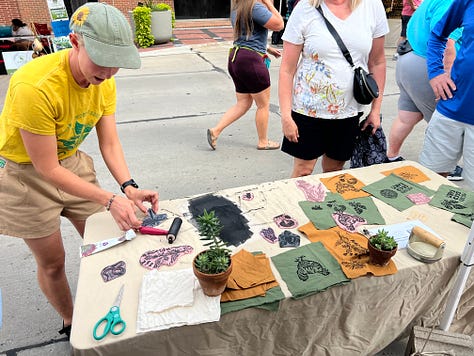
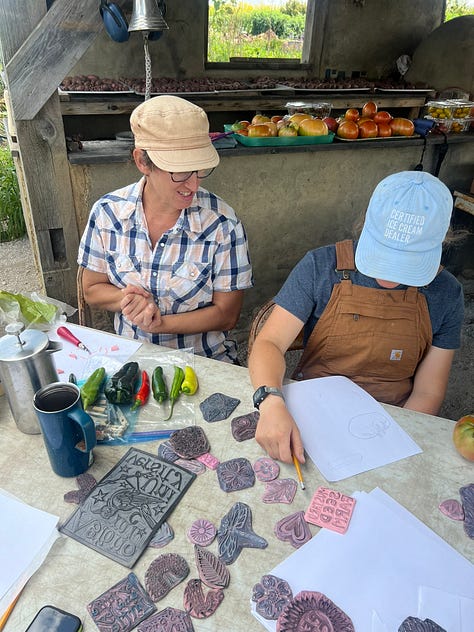
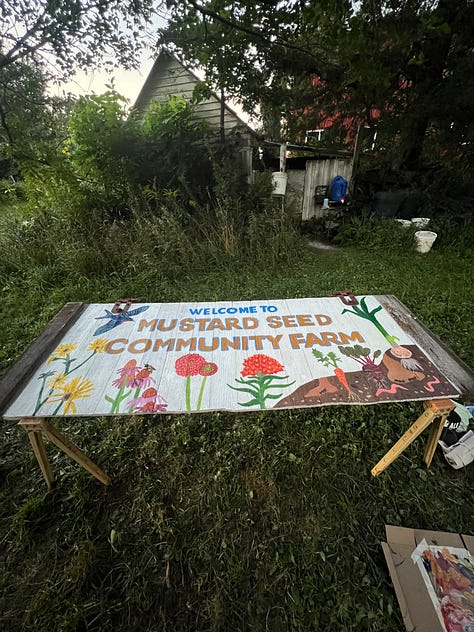
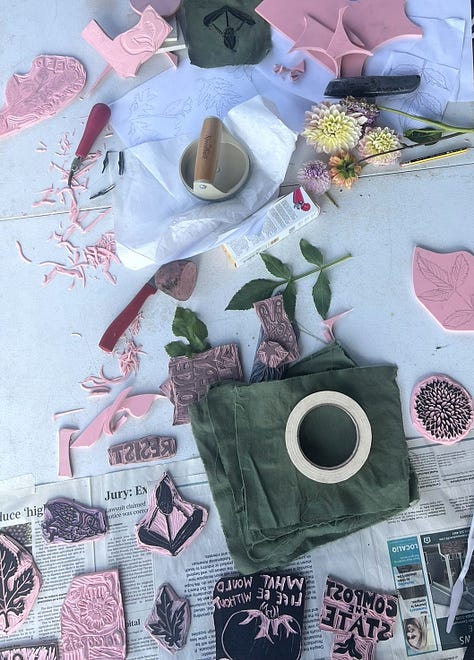
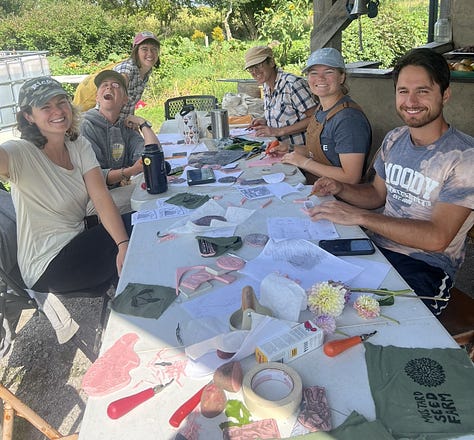
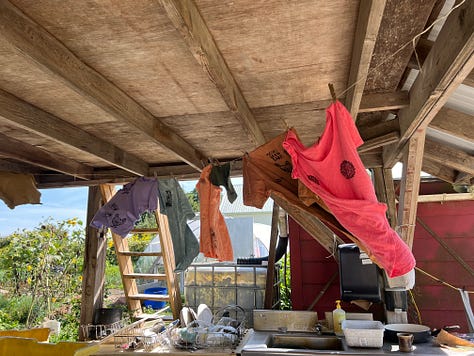
THE ROUNDUP
The Catholic Worker National Gathering, sponsored by Chicago’s St. Francis Catholic Worker community, is coming up on October 4-6; the gathering coincides with the community’s fiftieth anniversary celebration. Attendees can expect plenary panels such as “Lessons Learned from 50 years of St. Francis House” as well as a panel spotlighting younger voices in the movement. Roundtable discussions and workshops will focus on Dorothy Day’s call for critical engagement with the Church, nuclear activism, land justice, outreach to marginalized communities, reparative justice, and non-violent activism. Other offerings explore the role of art in activism and a conversation on the complex topic of abortion. The gathering also includes shared meals, prayer, Mass, and storytelling. The event is free and open to anyone interested in the Catholic Worker; register at the Saint Francis CW website.
Kate Hennessy, granddaughter of Dorothy Day, appeared on EWTN News Nightly to discuss her grandmother’s impact and ongoing canonization process. “She had no idea she was starting a movement,” Hennessy said. “She didn’t want to be put on a pedestal. She believed we all have to be involved, to do the work.” Hennessy also touched on the personal struggles Day faced, including an illegal abortion before her conversion to Catholicism. View the interview on YouTube.
The Christian faith of the late Russian dissident Alexei Navalny was not widely known, according to an article by Chris Zimmerman in the September issue of The Catholic Worker. The article describes his journey from a nominal believer to someone who found spiritual solace during his imprisonment. Also featured in the issue: “Decades of Nuclear Lies" by Linda Pentz-Gunter, an essay criticizing the nuclear power industry for its harmful practices, environmental degradation, and the impact on marginalized communities; "Maternal Health and Racism" by Efran Menny, an article originally published by Black Catholic Messenger addressing the alarming maternal health crisis among African American women; and a note from St.Joseph House, where intense heat and humidity this summer have made life challenging—not only for house residents, but for the unhoused living on the streets. You can read these and other articles in the print edition of the paper, which you can receive by contacting the New York Catholic Worker.
The manifesto of Le Café Dorothy (Paris) also made an appearance in the September issue of The Catholic Worker. The manifesto critiques capitalism and its harmful impact on society and the environment. It argues that capitalism’s focus on profit maximization undermines communal values and ecological sustainability. The manifesto calls for a reimagined social order grounded in solidarity, justice, and respect for all life, and encourages Christians to actively oppose the exploitative nature of capitalist systems and to embody values that promote human dignity and communal well-being.
Speaking of Le Café Dorothy, the community’s website features a 25-minute documentary film about the cafe. Beautifully produced, the film portrays the space as a vibrant, welcoming community center dedicated to supporting marginalized individuals with social services and mutual aid. But it also provides training in skilled crafts and intellectual enrichment and discussion. The community keeps a busy calendar full of conferences, workshops, and other events. View the film at the community’s website (bottom of the home page).
A small anthology of some of Dorothy Day’s columns has been published in Swedish; the passages were selected by members of the Mustard Seed Catholic Worker in Lulea, Sweden. See this Facebook post for more.
“Something very beautiful is happening in Charlottesville in the face of all this ugliness and brutality, and I wanted people to know about it,” Eric Martin told the Political Theology Network’s Mary Kate Holman in a recent interview about his book, The Writing on the Wall: Signs of Faith Against Fascism. Holman writes: “As one of the few Catholics among the faith-based coalition of counter-protesters at the Unite the Right rally, Martin draws on firsthand accounts of the faith communities in Charlottesville to offer a prophetic vision for a theology animating anti-fascist action.” Read the interview.
“(Dorothy) Day imagined an economic reality that honored the dignity of the human person, based on the universal brotherhood of the mystical body of Christ,” writes Renée Roden in the September U.S. Catholic. “This reality was incarnated through economic cooperation, rather than in competition.” Read the entire essay here: What did Dorothy Day say about capitalism?
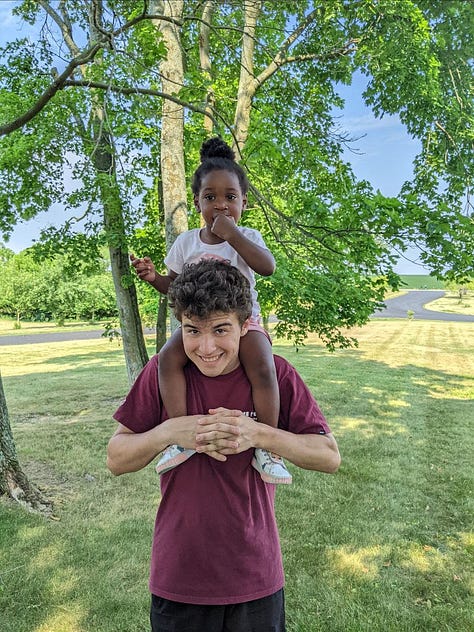
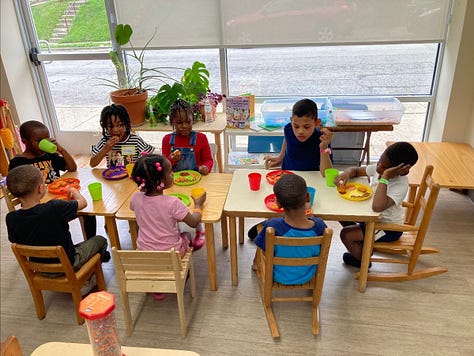
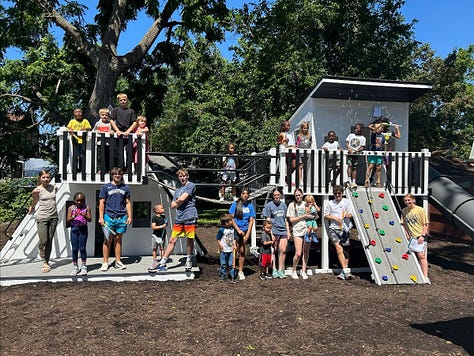
CALENDAR
September 11 | London Catholic Worker
The Priest’s Tale / Nuclear Disarmament
September 12-15 | Sugar Creek, Iowa
Midwest Catholic Worker Gathering
September 13-14 | Saint Kateri National Shrine, Fonda, New York
26th Annual Kateri Peace Conference
September 21 | Platteville, Wisconsin
Little Platte Catholic Worker Farm Landwarming and Celebration
September 24 | St. Bakhita Catholic Worker, Milwaukee, Wisconsin
Contemplative Prayer to End Racism
September 26 | St. Martin de Porres House, Harrisburg, PA
Roundtable Discussion on Mary Frecon
October 4-6 | St. Francis Catholic Worker, Chicago, Illinois
Catholic Worker National Gathering
October 9 - April 10 | St. Bakhita Catholic Worker, Milwaukee, Wisconsin
Dorothy Day: Patron Saint of Both/And
A FEW GOOD WORDS
“On Farming Communes” by Peter Maurin
Read Peter’s Easy Essay in its original series in the February 1971 edition of The Catholic Worker.
When unemployed college graduates
will have been indoctrinated
they will be moved
to Farming Communes.
On Farming Communes
unemployed college graduates
will be taught
how to build their houses,
how to gather their fuel,
how to raise their food,
how to make their furniture;
that is to say,
how to employ themselves.
Unemployed college graduates
must be taught
how to use their hands.
Unemployed college graduates
have time
on their hands.
And while time is on the hands
of college graduates
their heads don’t function
as they should function.
On Farming Communes
unemployed college graduates
will learn to use
both their hands
and their heads.
Roundtable covers the Catholic Worker Movement. This week’s Roundtable was produced by Jerry Windley-Daoust, Renée Roden, and Monica Welch.
Roundtable is an independent publication not associated with the New York Catholic Worker or The Catholic Worker newspaper. Our mission is to cover news from the Catholic Worker Movement. Send inquiries to roundtable@catholicworker.org.


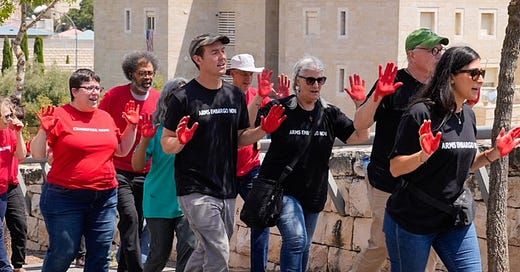




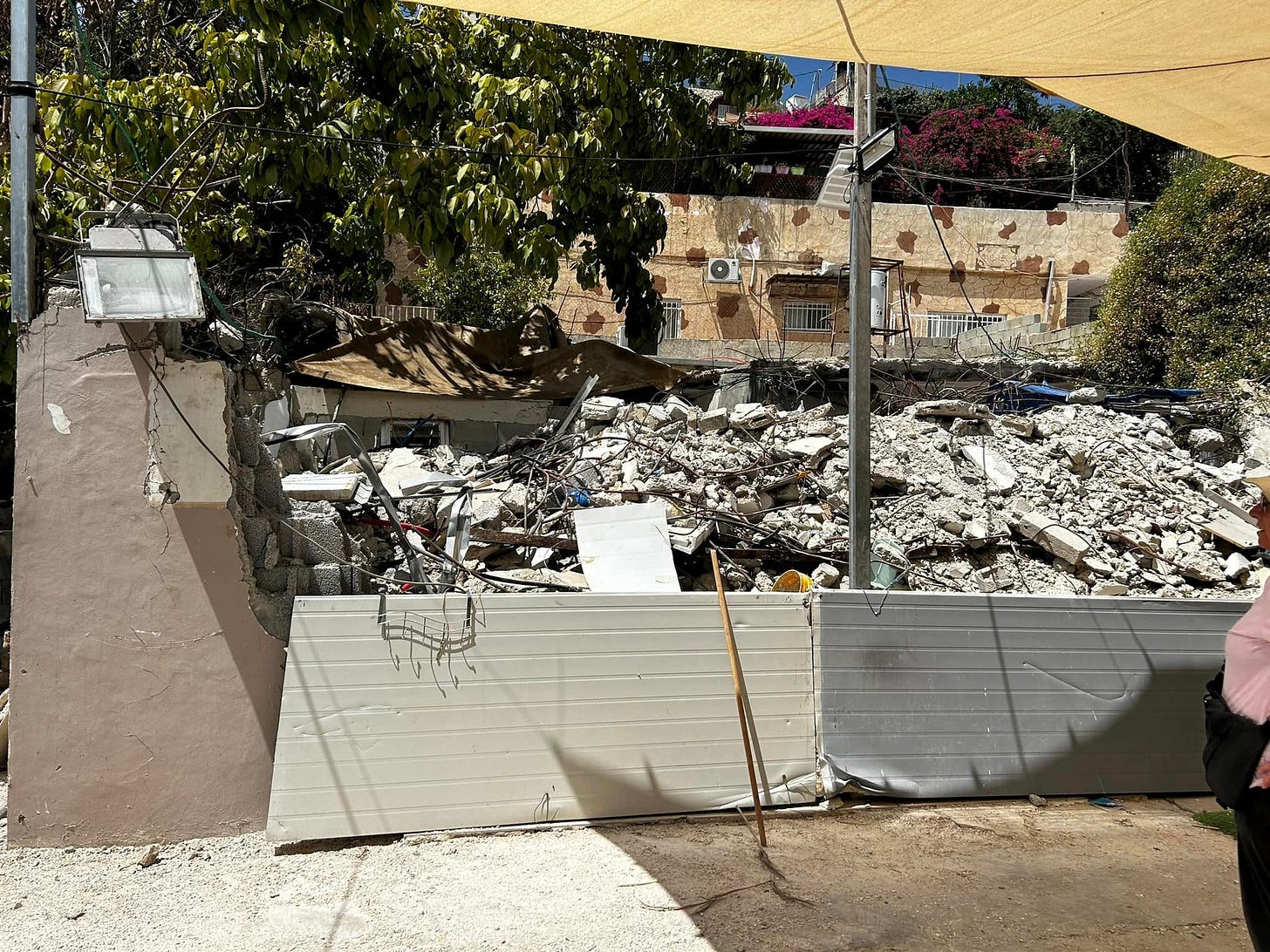
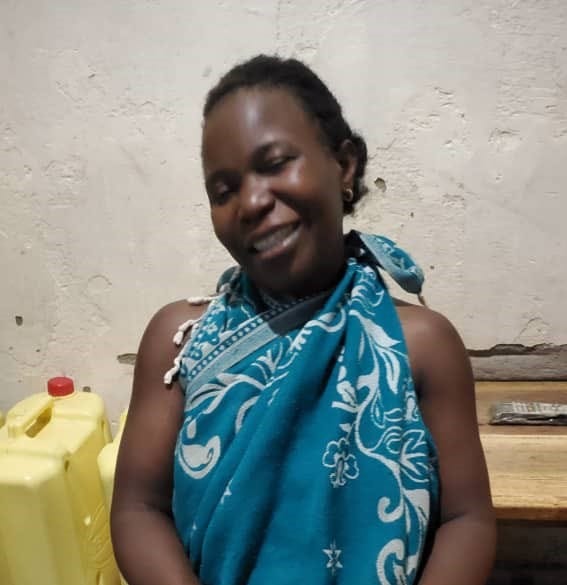
🙌✝️
Thank you for shining light on this side of heaven, glorifying God, and serving those in need.
solidarity forever. gratitude to y’all ❤️🔥